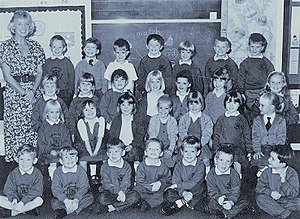Introduction
The Dunblane school massacre, which took place on March 13, 1996, is a tragic event that left a lasting impact on the United Kingdom. This horrifying incident involved the fatal shooting of 16 children and their teacher at Dunblane Primary School in Scotland. The perpetrator, a former scout leader, later took his own life. The Dunblane school massacre stands as one of the deadliest mass shootings in British history and has had significant consequences for gun control laws in the country.
The Tragic Event
On that fateful day in 1996, the tranquility of the small town of Dunblane was shattered when a heavily armed individual entered Dunblane Primary School. The gunman, Thomas Hamilton, was armed with four handguns and hundreds of rounds of ammunition. He targeted a primary one class, where children aged just five and six were innocently going about their day.
Hamilton opened fire on the children and their teacher, Gwen Mayor, with devastating consequences. Sixteen children lost their lives in the attack, along with their courageous teacher. The scene of the massacre was one of unimaginable horror and grief, leaving the community and the entire nation in shock.
The Aftermath and Public Outrage
In the wake of the Dunblane school massacre, the nation was united in grief and outrage. The loss of innocent lives, particularly those of young children, struck a chord with people across the country. The event sparked a national conversation about gun control and the need for stricter regulations to prevent such tragedies from happening again.
The Snowdrop Campaign, named after the snowdrop flower which symbolizes hope, was launched in response to the massacre. This campaign aimed to tighten gun control laws in the United Kingdom and was led by parents of the victims, along with other concerned citizens. Their tireless efforts eventually led to significant changes in legislation.
Impact on Gun Control Laws
The Dunblane school massacre played a pivotal role in shaping gun control laws in the United Kingdom. Following the tragedy, the government took swift action to address the issue of firearms regulation. In 1997, just a year after the massacre, the Firearms (Amendment) Act was passed.
This legislation banned private ownership of most handguns in the UK and introduced stricter licensing requirements for those who wished to possess firearms. The changes were widely supported by the public and marked a significant shift in the country’s approach to gun control.
Legacy and Remembering the Victims
The legacy of the Dunblane school massacre lives on, both in the hearts of those affected by the tragedy and in the collective memory of the nation. The victims, the innocent children and their teacher, are remembered as symbols of the need for stricter gun control measures.
In Dunblane, a memorial garden was created to honor the victims and provide a place for reflection. The garden serves as a reminder of the lives lost and the importance of preventing such senseless acts of violence.
Conclusion
The Dunblane school massacre of 1996 was a horrific event that shook the United Kingdom to its core. The loss of innocent lives, particularly those of young children, sparked widespread public outrage and led to significant changes in gun control laws. The legacy of this tragedy serves as a reminder of the need for continued efforts to prevent such acts of violence and protect the safety of our communities.

